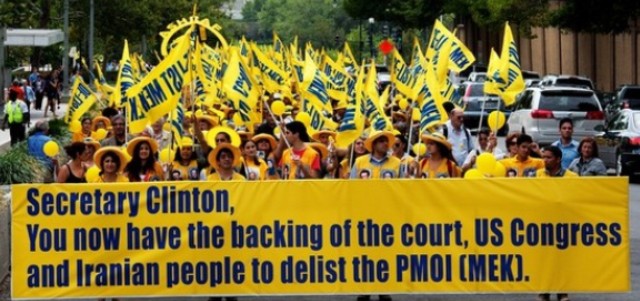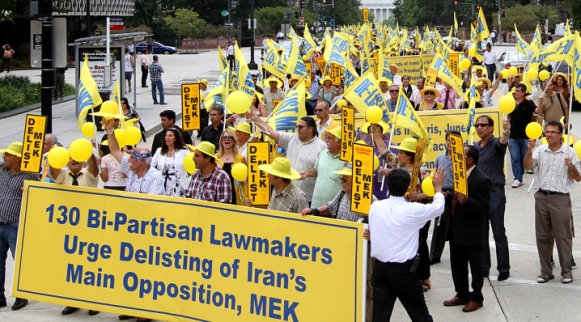
A huge crowd of Iranian American demonstrators protest during a rally in front of the US Department of State on August 26, 2011 in Washington, DC. The group was demanding the removal of the People's Mojahedin Organization of Iran from the list of terrorist organizations by the State Deptartment. AFP Photo/Paul J. Richards (Photo credit should read PAUL J. RICHARDS/AFP/Getty Images)


